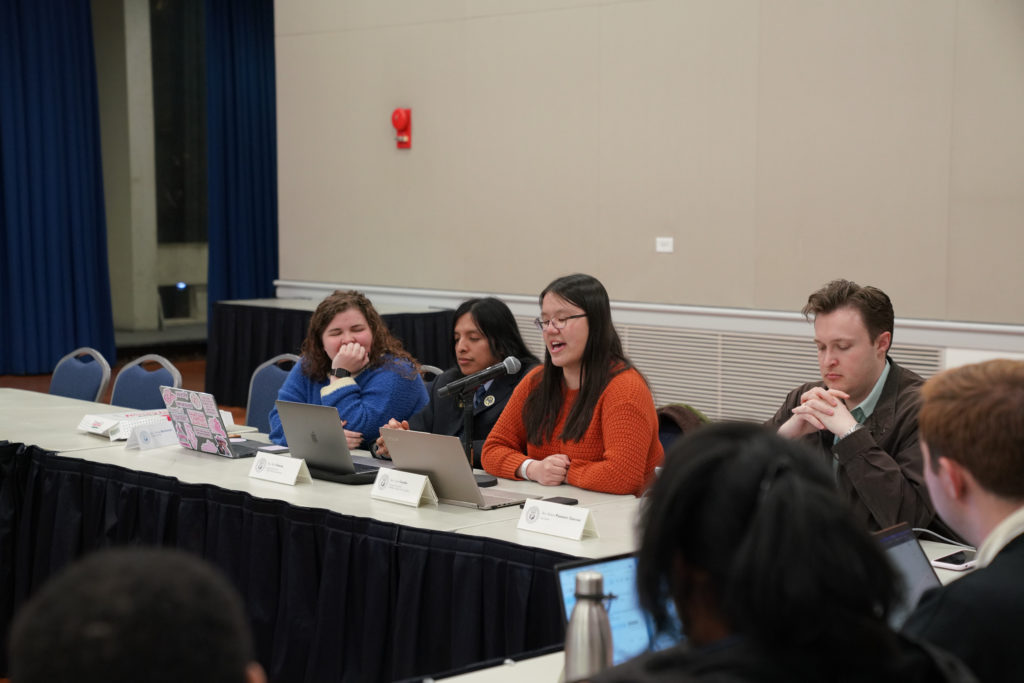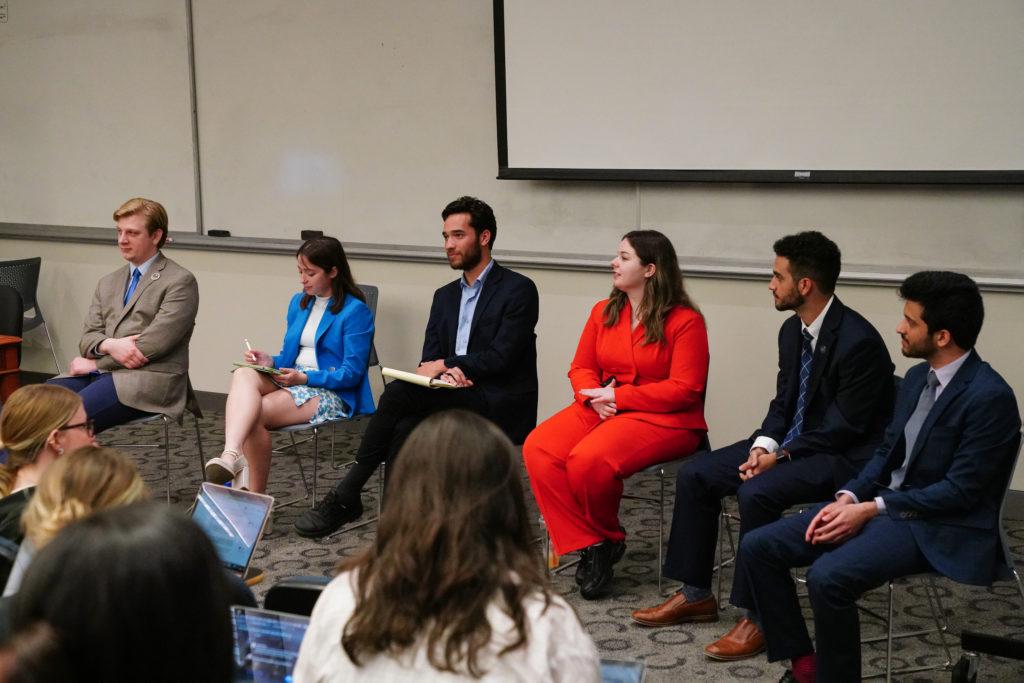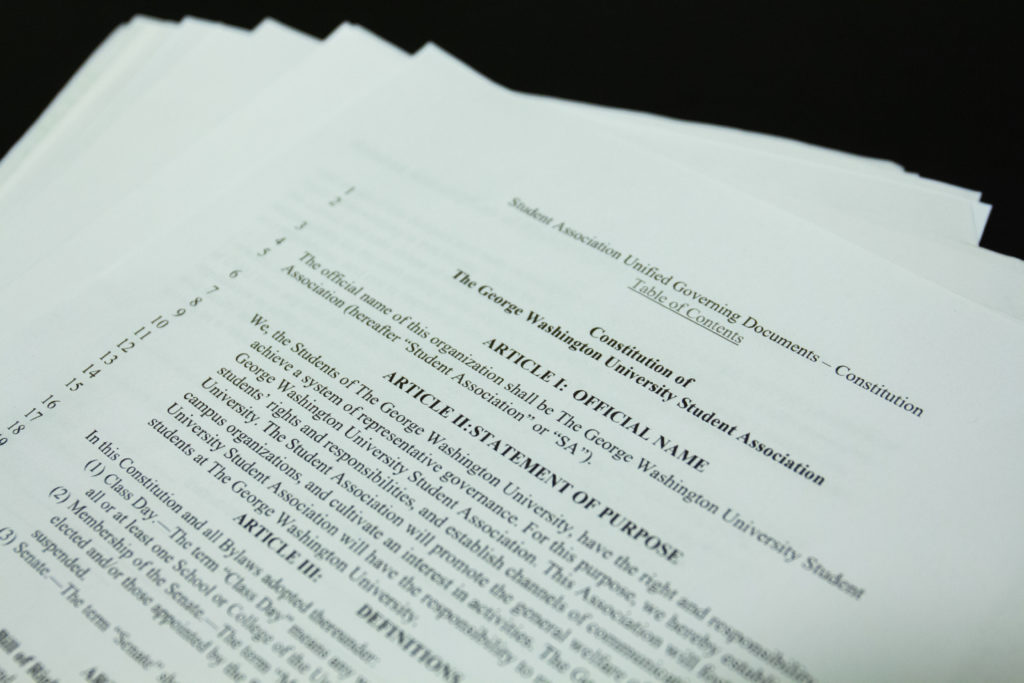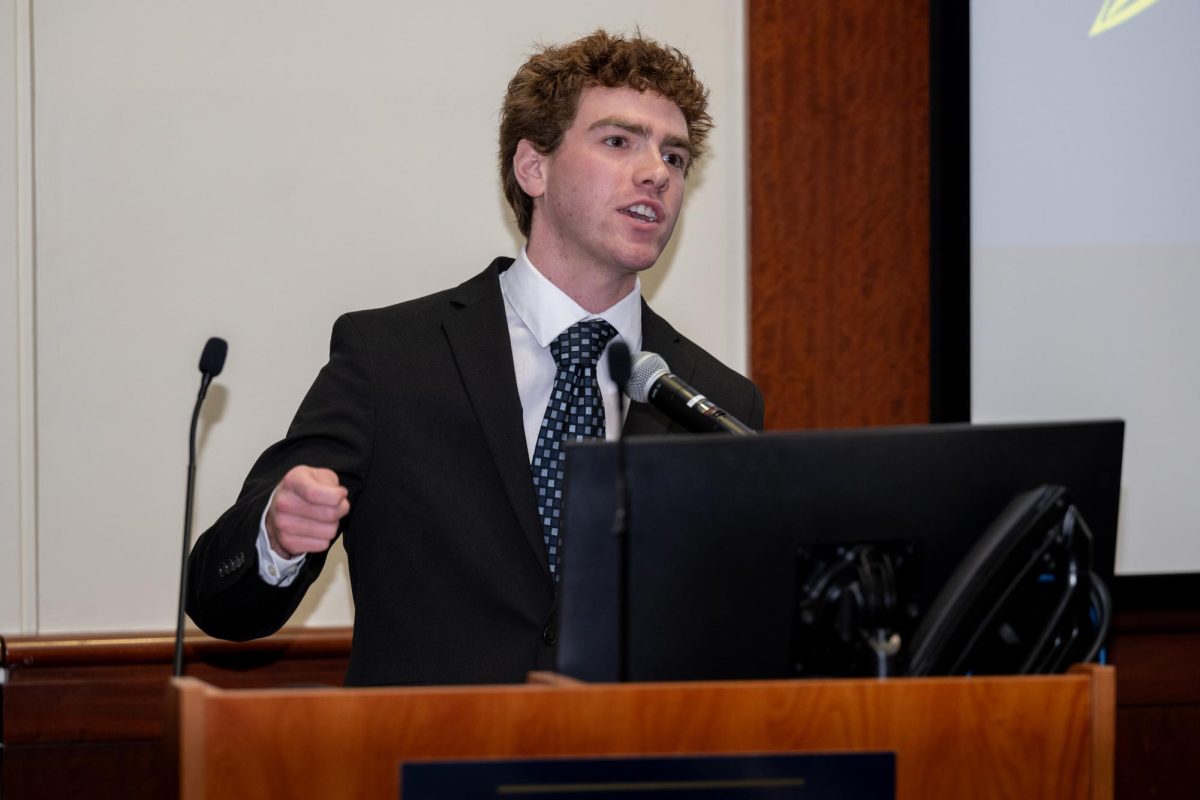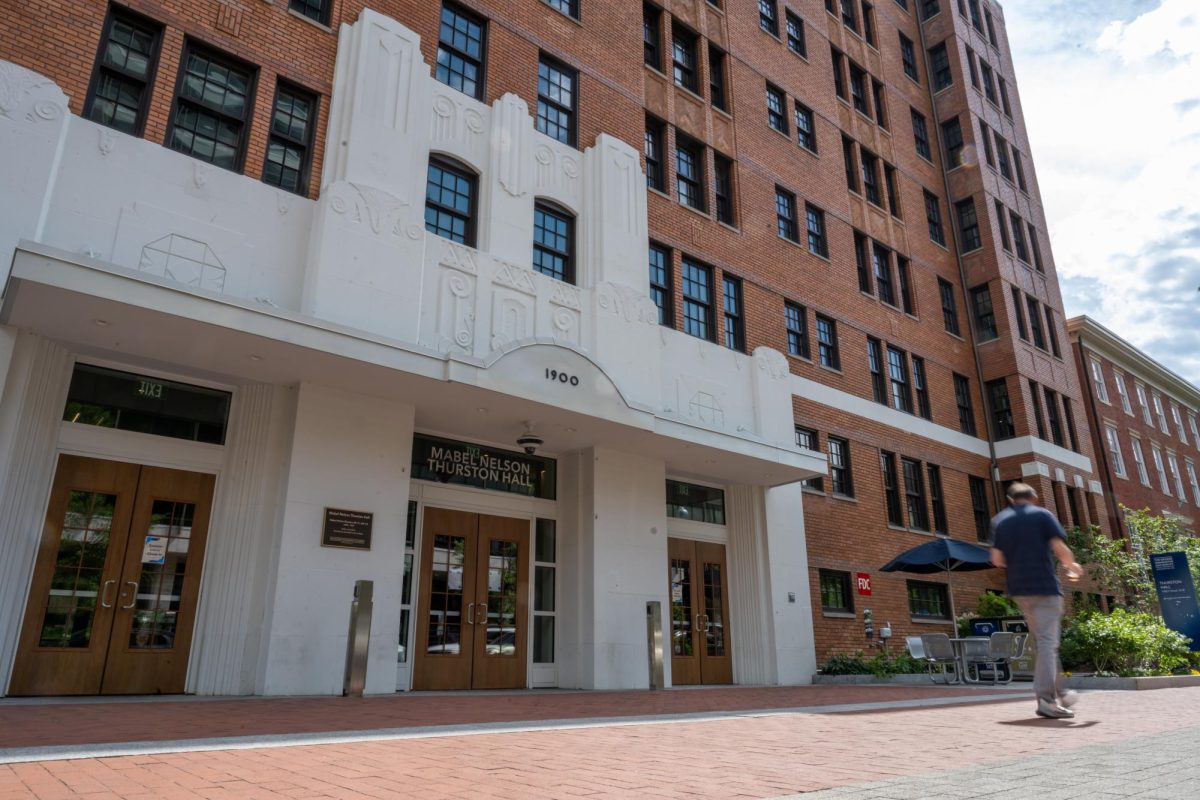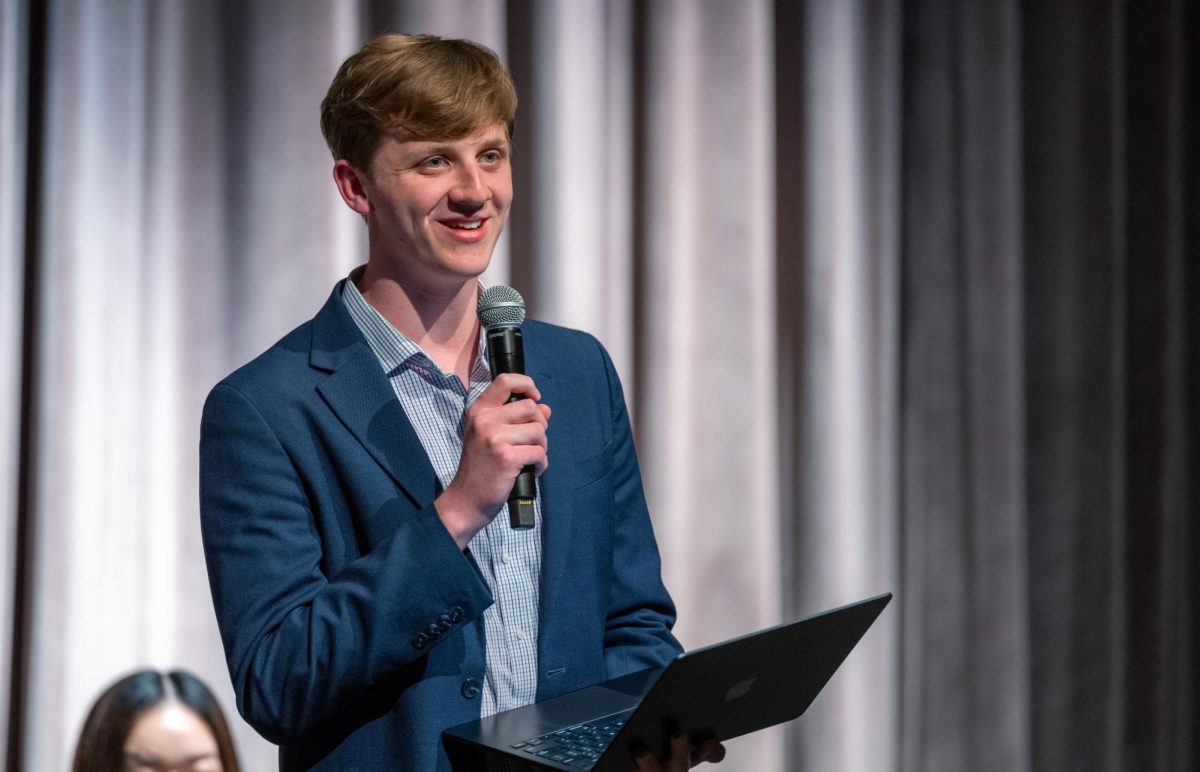The lowest number of candidates in more than 20 years are running for the Student Association Senate.
None of this year’s 14 verified candidates currently face competition on the ballot, and with no write-in candidates announcing campaigns, 27 seats are set to be left vacant next term. The current campaign period marks the lowest number of candidates running for a senate seat since 2002, when there were a dozen candidates on the ballot, according to The Hatchet’s archives.
Of the 14 senate candidates running for office, half would represent the Columbian College of Arts and Sciences in undergraduate seats. The Joint Elections Commission disqualified sophomore and CCAS senator candidate Aidan Spencer late last month, invalidating signatures on his petition that did not include students’ schools.
The remaining seven senate candidates include two running for the pair of School of Engineering and Applied Sciences undergraduate seats on the legislative body. Five graduate students are running for 22 total seats across the School of Medicine and Health Sciences, the School of Engineering and Applied Sciences, the Elliott School of International Affairs, the College of Professional Studies seat and GW Law.
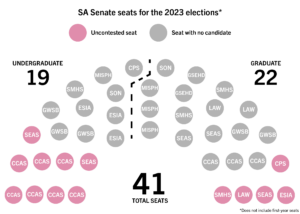
A total of 27 out of 41 available senate seats have no candidates this year, tallying two more vacancies than last year’s election when 25 of 46 seats lacked a candidate. The total number of senate seats depends on each school’s total enrollment, with each senator representing 750 students, according to the SA bylaws.
Senate candidates said more consistent advertisements about the SA’s mission and accomplishments through Instagram and other student organizations would counter its reputation marked by frequent infighting. They attributed the disinterest in senate positions to the drama surrounding elected office in the SA in controversies, like the JEC’s disqualification of SA President Christian Zidouemba from the election late last month and the resignation of seven SA members after Zidouemba’s struggle to retain the presidency last summer.
Senate Chairperson Pro Tempore Demetrius Apostolis, CCAS-U and a vice presidential candidate, said he asked deans from each school to advertise senate openings in school newsletters and encouraged eligible students to apply for seats to fill the vacancies this year.
He said graduate senate seats are more difficult to fill than undergraduate seats because the senate does not adequately consider issues graduate students face, like finding childcare while they attend SA meetings. Apostolis said he spoke with SA Sen. Amy Cowley, ESIA-G, about how the governing body could help graduate students find and locate affordable childcare options.
“I think, first and foremost, it’s creating things that matter to graduate students so including graduates in our student life, having a graduate-only newsletter, things that I think would really engage graduate students so that grads feel like they’re part of the GW community,” he said.
Five graduate students are running for 22 graduate senate seats during this year’s SA elections – one fewer than last spring, albeit with five fewer seats available this time around due to lower enrollment.
SA Sen. Nicole Blackstone, G-At-Large, now a candidate for the graduate College of Professional Studies’ senate seat, said many of her peers have children and lack the time to hold an SA position, which she said seems to be a factor in the low number of graduate senate candidates. She said senators should communicate that the time commitment is flexible based on their schedules, which could help graduate students realize their ability to manage the position.
“If it were a little bit more upfront about the time commitments, maybe people would be like, ‘Oh, this is something I could do pretty easily,” Blackstone said. “And if the passion is there, then they just have to make it work in their schedule.”
She said for prospective graduate senators in CPS, gathering signatures can be difficult because the school hosts few classes per night, limiting student interaction and reducing the number of students who consider running for office. She said fellow graduate student Sen. Kai Simson, CPS-G, told classmates in CPS about her campaign to help her get signatures.
“I only have classes with a handful of students that I rarely ever see again because we just don’t take the same classes together like that,” Blackstone said.
Freshman Ethan Fitzgerald, a CCAS-U senate hopeful, said appointing JEC members sooner would give them more time to promote the election, which would garner more candidates. The JEC held an informational event about the elections in early March, in line with its requirements to hold at least one public event before the candidate registration period, per the SA bylaws.
The senate confirmed JEC members at their Jan. 23 and Feb. 6 meetings, about two months later than the bylaws require.
“In future years, maybe starting that planning a bit earlier and trying to recruit members a bit earlier because I think that put them in a difficult position in terms of recruiting candidates as well,” Fitzgerald said.
He said he chose to focus on advocating for topics students have spoken to him about like increasing laundry money, starting eco-friendly projects and designating an SA advocate for housing issues.
“If people see more delivery of results and less drama, that’s going to get a lot more people interested,” he said.
Erika Filter contributed reporting.


